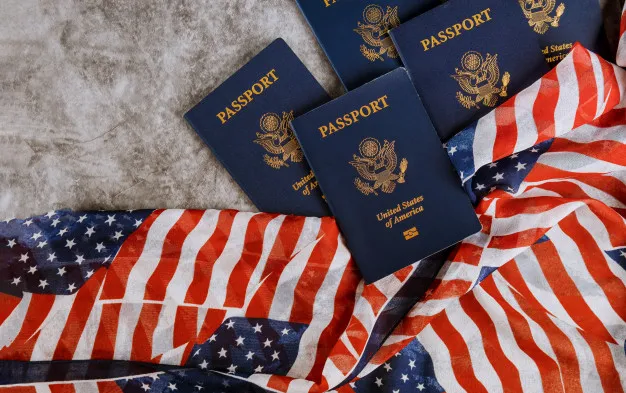60 US lawmakers urge Biden to extend work authorisations to spouses of H-1B visa holders
Among signatories to the letter are Indian-American congressmen Dr Ami Bera, Ro Khanna, Raja Krishnamoorthi and Pramila Jayapal. Other key signatories are congresswomen Bonnie Watson Coleman, Rashida Talib, Barbara Lee and Judy Chu.
A group of 60 US lawmakers have urged President-elect Joe Biden to revoke a Trump administration policy and extend the validity of work authorisation documents for H-4 visa holders, who are spouses of those possessing H-1B visas, with majority being highly-skilled Indian women.
An H-4 visa is issued by the US Citizenship and Immigration Services (USCIS) to immediate family members (spouse and children under 21 years of age) of the H-1B visa holders, most of whom are Indian IT professionals.
It is normally issued to those who have already started the process of seeking employment-based lawful permanent resident status.
"We respectfully request that the Department of Homeland Security publish a Federal Register notice on day one of your administration that would extend the validity period of all expired H4 EADs," the members of the US House of Representatives wrote to Biden in a letter on December 16.
Biden, a Democrat, is scheduled to be inaugurated as the 46th US President on January 20.
In 2015, the Department of Homeland Security (DHS) issued a rule allowing certain H-4 dependent spouses of H-1B visa holders to legally seek employment in the US, the letter said.
This rule presented an important step towards rectifying gender disparities in our immigration system, as around 95 per cent of H-4 visa holders who have secured work authorisations are women, it added.
Soon after coming to power, the Republican Trump administration informed a US court that it plans to rescind such a rule.
"Before the rule was granted, many women on H-4 visas described depression and isolation in moving to a new country and not being allowed to work outside of the home. Unfortunately, these women are losing and will continue to lose their jobs until this is put right, disrupting the lives of their families and the functioning of employers in our districts," the letter said.
Among signatories to the letter are Indian-American congressmen Dr Ami Bera, Ro Khanna, Raja Krishnamoorthi and Pramila Jayapal. Other key signatories are congresswomen Bonnie Watson Coleman, Rashida Talib, Barbara Lee and Judy Chu.

In the letter to Biden, the lawmakers said that once an H-1B holder is sponsored for employment-based lawful permanent resident (LPR) status (otherwise known as a Green Card), his or her H-4 visa-holding spouse may apply for work authorisation.
"This rule presented an important step towards rectifying gender disparities in our immigration system as around 95 per cent of H-4 visa holders who have secured work authorisation are women," they wrote.
"These women on H-4 visas work in a variety of fields like essential healthcare workers, including in research and development roles at pharmaceutical companies; these women play tremendously important roles as we continue to battle the COVID-19 pandemic," the letter said.
We are confident that your incoming Secretary of the Department of Homeland Security will rectify the systemic processing issues that have been created by the Trump Administration, the lawmakers wrote.
As of December 2017, USCIS had approved 1,26,853 applications for employment authorisation for H-4 visa holders. According to a 2018 report by Congressional Research Service (CRS), 93 per cent of approved applications for H-4 employment authorisation were issued to individuals born in India, and five per cent were issued to individuals born in China.
Edited by Anju Narayanan








